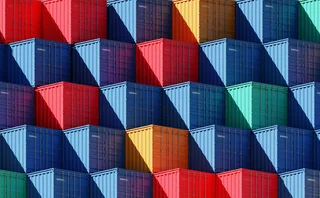
Energy Risk Asia Awards 2018: The winners
BNP Paribas takes Derivatives house, BP wins Oil & products and BOCI and Engie scoop two awards each

Commodities prices have been volatile this year with extended periods of relatively low correlation between products. The resulting increased basis risk has been especially hard to manage in Asia where markets are less mature and more opaque than in Europe and the US.
The winners of this year’s Energy Risk Asia awards operate across a range of different market segments but they have all contributed to taking Asian markets to the next level, either through sophisticated structuring, bespoke risk management solutions or by bringing more transparency to the region.
Increased basis risk was particularly evident in the Asian liquefied natural gas (LNG) market this year, fuelling demand for hedging using regional indexes. “There is a growing need to manage risk across various locations … [and] as a result, clients have a lot of basis risk,” says Nishan Hegde, associate, commodity sales at BNP Paribas, this year’s derivatives house of the year. The bank offers bespoke hedging solutions based on a variety of indexes from the well-established ones to less liquid, local indexes, such as the Japan Korea Marker and the Japanese Crude Cocktail.
Meanwhile, the oil and products market faces risk management challenges of its own due to upcoming rules from the International Maritime Organisation mandating low sulphur shipping fuel from 2020. There are huge questions over whether refineries will be able to produce enough of the new fuel in time to meet demand and what the impact of that will be on their production of other fuels. Not just shipping companies but all energy-intensive firms, from manufacturers and miners to airlines could feel the impact of this.
“This is a huge shock to the system,” says Singapore-based Iain Lawson, head of structured products, eastern hemisphere, at BP, the winner of our oil and products house of the year. Moreover, hedging the new fuel from 2020 onwards is currently impossible as contracts on it are not yet trading. BP is one of very few firms offering its clients risk management solutions in this area.
Elsewhere, the spread of electricity market liberalisation continues to create more risks and trading opportunities across Asia-Pacific, particularly in Japan where retail power markets were liberalised in 2016 and in Singapore, where a futures market was established in 2015.
Overall, the explosion of trading opportunities has lured a swathe of new players into Asia in recent years, many of them relatively small and without sophisticated risk systems. This increases counterparty credit risk which, in turn, is hard to manage due to a lack of transparency. “In Asia it’s hard to get the financials needed to do fundamental credit work,” says Karl Sees, Singapore-based managing director of CubeLogic, a software company awarded best newcomer for the enterprise risk and credit solutions it is introducing to Asia.
A lack of transparency around China is a particular challenge, but this year the country took huge strides towards opening up its derivatives markets. The Shanghai-based International Energy Exchange launched a crude oil futures contract accessible to offshore and domestic investors, while the Dalian Commodities Exchange opened its iron contracts to international traders. These moves caused Bank of China International, the investment banking arm of Bank of China, to fast-track plans to launch its China Commodities Index, a product which earnt it our innovation of the year award.
And on the financing side, the spread of renewables across Asia is presenting new challenges. “This is a new asset class being born in the region,” says Daniel Mallo, Asia-Pacific head of natural resources and infrastructure at Societe Generale, the winner of our finance house of the year. “We expect it to mushroom and develop rapidly,” he adds.
For a full list of this year’s winners and to read the accounts of why they won, please see the links below.
Derivatives house of the year
BNP Paribas
Oil and products house of the year
BP
Commodity finance house of the year
Societe Generale
Best commodity research
Refinitiv
Exchange of the year
Singapore Exchange
Base metals house of the year
BOCI
Best newcomer
CubeLogic
CTRM software house of the year
Ion’s Aspect
Corporate risk manager of the year
Engie
Electricity house of the year
Engie
Coal house of the year
Tata International Singapore
Only users who have a paid subscription or are part of a corporate subscription are able to print or copy content.
To access these options, along with all other subscription benefits, please contact info@risk.net or view our subscription options here: http://subscriptions.risk.net/subscribe
You are currently unable to print this content. Please contact info@risk.net to find out more.
You are currently unable to copy this content. Please contact info@risk.net to find out more.
Copyright Infopro Digital Limited. All rights reserved.
You may share this content using our article tools. Printing this content is for the sole use of the Authorised User (named subscriber), as outlined in our terms and conditions - https://www.infopro-insight.com/terms-conditions/insight-subscriptions/
If you would like to purchase additional rights please email info@risk.net
Copyright Infopro Digital Limited. All rights reserved.
You may share this content using our article tools. Copying this content is for the sole use of the Authorised User (named subscriber), as outlined in our terms and conditions - https://www.infopro-insight.com/terms-conditions/insight-subscriptions/
If you would like to purchase additional rights please email info@risk.net
More on Commodities
Energy Risk 2024 Software Rankings: IT demands increase amid rising risk
Heightened geopolitical and credit risk increase requirements on commodities software
Energy Risk Asia Awards 2023: the winners
Winning firms demonstrate resiliency and robust risk management amid testing times
ION Commodities: addressing the market’s recent pain points
Energy Risk Software Rankings winner’s interview: ION Commodities
Energy Risk Commodity Rankings 2023: adapting to new market dynamics
Winners of the 2023 Commodity Rankings provided reliability when clients faced extreme change
Energy Risk Software Rankings 2023: managing uncertainty
Unpredictable markets make CTRM software choices key
Navigating the volatility and complexity of commodity markets
Commodity markets have experienced significant challenges since the Covid-19 pandemic, the conflict in Ukraine and the subsequent sanctions imposed on Russia. These unprecedented events have caused fluctuations in supply and demand, disrupted global…
Energy Risk Asia Awards 2022
Recognising excellence in energy risk management
Market shrugs off EC’s plan to change gas benchmark
Dutch TTF prices unmoved, as market participants say they are “not taking it seriously”
Most read
- Industry urges focus on initial margin instead of intraday VM
- For a growing number of banks, synthetics are the real deal
- Revealed: the three EU banks applying for IMA approval








